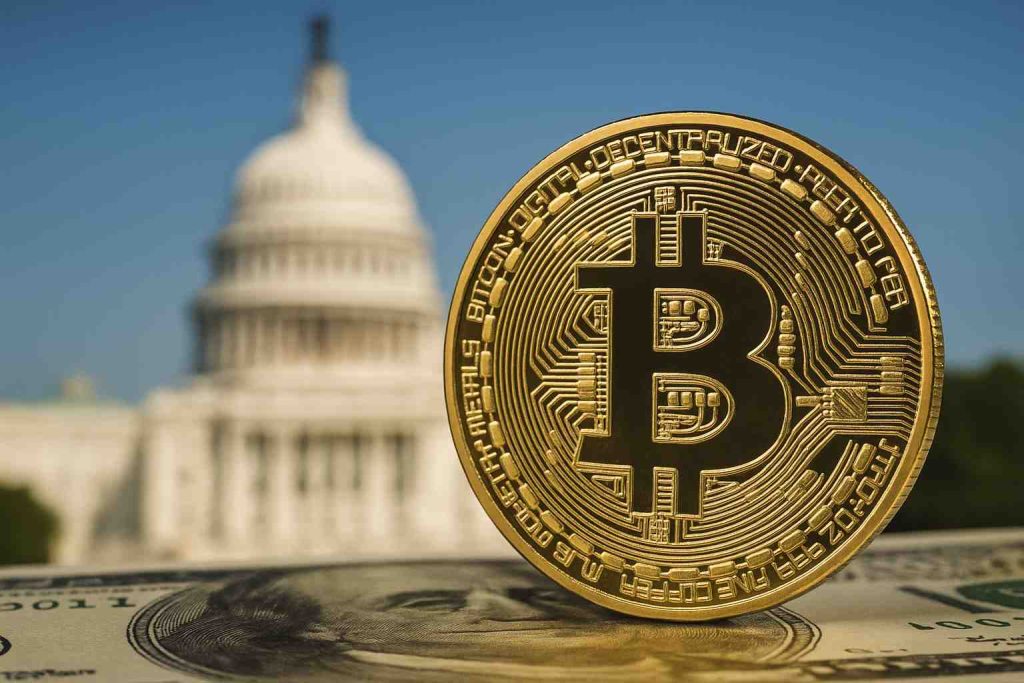Cryptocurrencies have surged in popularity, transforming financial landscapes around the globe. In the United States, policymakers grapple with how to effectively regulate and leverage digital assets. As the digital currency market expands, the government is tasked with balancing innovation and consumer protection, ensuring that digital currencies can thrive without posing risks to the economy.
Determining how cryptocurrencies fit into the existing financial ecosystem is a challenge. Their decentralized nature offers both benefits and risks, which necessitates a well-thought-out regulatory framework. In the U.S., this task falls to various regulatory bodies, each with its own approach to handling digital assets.
Understanding U.S. cryptocurrency regulation

Regulating cryptocurrencies in the U.S. involves multiple federal agencies. The Securities and Exchange Commission (SEC) focuses on cryptocurrencies deemed securities, ensuring compliance with financial laws. Meanwhile, the Commodity Futures Trading Commission (CFTC) monitors cryptocurrency derivatives. The Federal Reserve and Treasury Department also play crucial roles in forming policy and enforcement strategies to protect investors and maintain economic stability.
Federal and state regulations often intersect, creating a complex regulatory environment. States like New York, with its BitLicense, have established specific licensing requirements for cryptocurrency businesses. This patchwork of regulations challenges companies aiming for national market entry, demanding adaptability and compliance with both federal and local laws.
The role of the SEC and other agencies
The SEC’s role in cryptocurrency regulation is significant, especially concerning Initial Coin Offerings (ICOs) and exchanges. By classifying certain cryptocurrencies as securities, the SEC enforces regulations to prevent fraud and protect investors. Similarly, the CFTC regulates cryptocurrency futures and swaps, promoting market integrity through stringent oversight.
Furthermore, the Financial Crimes Enforcement Network (FinCEN) combats illicit financial activities involving cryptocurrencies. By enforcing Anti-Money Laundering (AML) regulations, FinCEN ensures that digital currency transactions remain transparent and traceable. This multi-agency oversight reflects a layered approach in managing digital assets in the U.S. market.
Promoting innovation in the cryptocurrency space
Despite regulatory hurdles, the U.S. government encourages innovation within the cryptocurrency sector. Various initiatives aim to foster growth, featuring collaborations between public and private sectors. These efforts focus on developing blockchain and digital asset technology, making the U.S. a competitive player in the global digital economy.
Innovation hubs and regulatory sandboxes are instrumental in this process, offering safe environments for startups to test their technologies without fear of legal repercussions. These programs represent a strategic effort to support blockchain innovation, facilitating experimentation and potential advancements in financial technology.
Encouraging blockchain and fintech growth
The U.S. supports blockchain development through initiatives like the Digital Chamber of Commerce and the Blockchain Association. These groups work to educate policymakers and promote favorable legislation. Partnerships between tech innovators and government bodies are essential, providing a collaborative framework to advance digital financial services.
Moreover, financial institutions are increasingly exploring blockchain applications, leading to new service offerings and efficiency improvements. The willingness to embrace fintech innovation positions the U.S. as a leader in the global digital currency landscape, fostering an environment where digital currencies can evolve.
Conclusion on U.S. regulatory and promotional efforts
U.S. policy regarding cryptocurrencies and digital assets continues to evolve, balancing regulation with innovation. As digital currencies become increasingly integral to the financial landscape, the U.S. government remains committed to developing policies that protect consumers without stifling growth. Through strategic regulation and support for blockchain technologies, the U.S. endeavors to position itself as a global leader in the digital economy.
Ongoing regulatory adjustments, coupled with support for fintech advances, emphasize a nuanced approach to handling cryptocurrencies. With evolving strategies, the U.S. aims to create a thriving digital asset environment, ensuring safety, innovation, and competitiveness in the global market.
